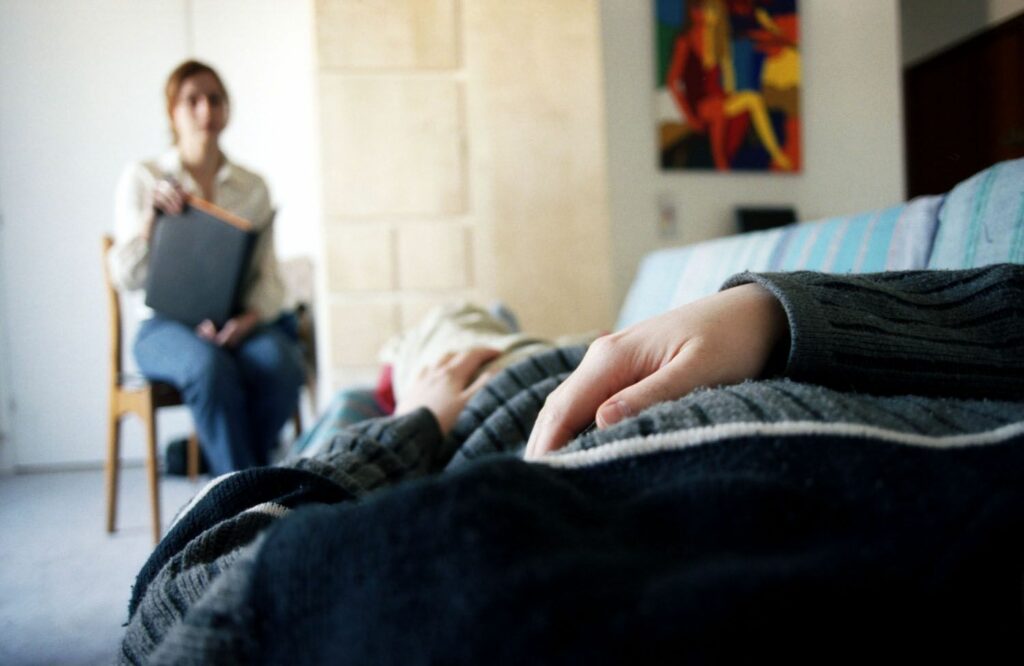Obsessive-Compulsive Disorder (OCD) is one of the most prevalent mental health conditions in children. Though pediatric OCD can be difficult to diagnose due to its varied and overlapping symptoms with other mental health issues, treatment is available and effective. In this blog post, you will learn about all the different treatment options available for children suffering from OCD, as well as how to identify signs and symptoms of the condition. With the right care and support, pediatric OCD sufferers can lead healthy and successful lives.
Contents
Pediatric OCD
Obsessive-compulsive disorder (OCD) is a mental health condition that causes children to have intrusive, unwanted thoughts (obsessions) that lead them to perform repetitive behaviors (compulsions). OCD can be a debilitating condition that interferes with school, friendships, and family life.
There are several different types of OCD, each with its own unique set of symptoms. Some common obsessions include fear of contamination, need for symmetry or exactness, and intrusive thoughts about harm coming to oneself or others. Common compulsions include excessive hand-washing and cleaning, ordering and arranging objects, and repeated checking.
If your child has been diagnosed with OCD, it is important to find a treatment provider who has experience treating children with the condition. Treatment for pediatric OCD should be tailored to the individual child’s needs and may vary depending on the severity of the symptoms.
Pediatric OCD Treatment
Treating OCD in children requires a comprehensive approach that combines different therapies and medications. Treatment should be tailored to the individual child’s needs and may include cognitive-behavioral therapy (CBT), exposure and response prevention (ERP), medication, family therapy, school accommodations, and lifestyle changes.
Cognitive-Behavioral Therapy (CBT)
CBT is a type of psychotherapy that helps children identify and change their negative thinking patterns. It also teaches them specific coping skills to help them manage their symptoms. During CBT, children learn how to recognize their intrusive thoughts and resist the urge to perform their compulsions. The goal of CBT is to help children gain a sense of control over their OCD symptoms.
Exposure & Response Prevention (ERP)
Exposure & Response Prevention (ERP) is an evidence-based form of treatment for pediatric OCD. During ERP, therapists help children confront their fears in a safe, controlled environment by gradually exposing them to their triggers without performing any rituals or compulsions. This allows children to learn that the feared outcome will not happen if they do not engage in compulsive behavior. Over time, this helps them develop new ways of responding to their triggers without engaging in rituals.
Medication
Medication can be an effective way to manage the symptoms of OCD in children. Commonly prescribed medications include selective serotonin reuptake inhibitors (SSRIs) and serotonin-norepinephrine reuptake inhibitors (SNRIs). Furthermore, These medications help to regulate certain neurotransmitters in the brain and can reduce the severity of OCD symptoms.
Family Therapy & School Accommodations
Family therapy can help parents gain a greater understanding of their child’s disorder and learn how to best support them. School accommodations may also be necessary for children with OCD to help them succeed academically. These accommodations might include extra time on tests, changes in seating arrangements, or reduced workloads when needed.
Lifestyle Changes
Parents need to create a home environment that is conducive to managing pediatric OCD symptoms. This may require making lifestyle changes such as reducing stress levels, practicing relaxation techniques, establishing consistent routines, and ensuring adequate sleep. It is also important for parents to model healthy behaviors and provide emotional support for their children throughout their recovery journey. Furthermore, These lifestyle changes can help children better manage their symptoms and lead more fulfilling lives.
Why Do People Need Pediatric OCD Treatment?
There are many reasons why people might need pediatric OCD treatment.
- Some children may start to show signs of OCD at a very young age, while others may develop the disorder later in childhood or adolescence. In some cases, OCD can be triggered by a stressful event, such as the death of a loved one or a divorce.
- OCD can cause a great deal of distress and can interfere with daily life. Children with OCD may have difficulty going to school or participating in social activities. They may avoid situations that trigger their obsessions or compulsions. As a result, they may become isolated and withdrawn.
- OCD can also take a toll on families. Parents may feel overwhelmed by their child’s behaviors and unable to cope. Siblings may feel neglected or resentful. Furthermore, If left untreated, OCD can hurt all aspects of life.
- Furthermore, Pediatric OCD treatment can help children and families manage the symptoms of OCD and improve their quality of life. Treatment typically includes counseling, medication, and/or exposure therapy. With proper treatment, most children with OCD can learn to control their symptoms and live happy productive lives.
Conclusion
Pediatric OCD is a challenging condition to manage, and there are many treatment options available. The most important thing is to ensure that the right treatment approach is chosen for your child. There are different types of behavioral therapy and medication available. It’s essential to work with an experienced doctor or mental health professional to find the best course of action for your child. With proper support and resources, pediatric OCD can be managed effectively with positive outcomes so that children can lead happy and successful lives.
For more information and guidance, please contact MantraCare. OCD is a mental health disorder characterized by obsessions and compulsions. If you have any queries regarding Online OCD Counseling experienced therapists at MantraCare can help: Book a trial OCD therapy session


